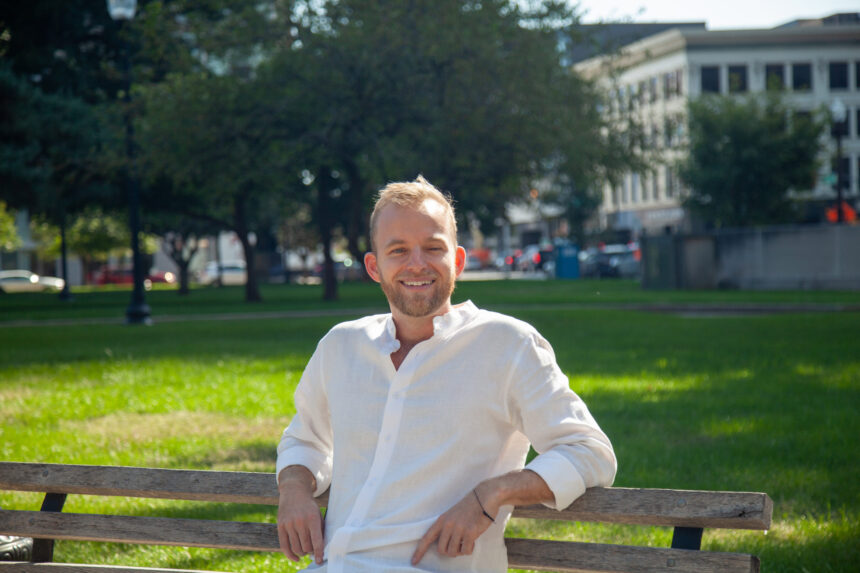Henry moved to San Francisco in search of success after earning a bachelor’s degree from Brown and conducting research in Asia. He worked as an account executive for a security business while having fun and going to concerts, but his easygoing life did not last for long. He now owns Wai Wear, a successful ecommerce startup company with over $1.5 million in sales.
Wai Wear’s co-founder Henry Lanham claims that he did not actively pursue a business opportunity at the time the firm was created, which was one of the rare times in the previous few years.
Henry has been eking out a living in California for the past few years. After a spate of catastrophes, he barely made ends meet by renting out everything he had, including his house, cars, and brain-scanning equipment. He and his buddies traveled to Thailand for a life-changing holiday since they were worn out and in need of a break. As a result, they started a clothes company.
Wai Wear is a successful ecommerce company with over $1.5 million in sales over the past year, according to most indicators, despite a challenging start that involved borrowing from the bank to pay off debts from friends. Henry and his firm pushed the boundaries of “heteronormativity in fashion,” and Wai Wear’s “look cute guarantee” helped to fuel the business’s present success.
How to Live Freely in San Francisco
Henry moved to San Francisco in quest of success after earning a bachelor’s degree from Brown and conducting research in Asia.
“Because I thought I was going to become wealthy, I didn’t see my costs as an issue. A hotel room for two thousand euros? No issue!” Through the phone, Henry chuckles.
He claims that he worked as an account executive for a security business for the duration of his formative years in California while also having fun and going to concerts. He wasn’t too worried about his future job, his cash, or his next salary. The easygoing life did not, however, persist for very long.
“Despite suffering a serious concussion, I took no action. Just kept on celebrating and going to concerts,” Henry adds.
He quickly learned, however, that his untreated concussion was much more serious than he had feared. He could no longer function efficiently due to the severity.
“I just couldn’t function,” Henry said of his concussion. “I was losing my bearings during the conversation. Even math was a challenge for me. I had to leave and report for duty.
And he put in work. To save money on rent, he relocated and left his work. Henry says he is working up to five jobs right now and living with his girlfriend.
According to Henry, “I shared an apartment with friends for ten months while living with my girlfriend.” “I was hiring cars and biometric equipment, but I was suffocating. I ultimately had to leave because by not paying the rent, I had angered three of my girlfriend’s friends.
In search of inexpensive accommodation, Henry relocated to a neighborhood on the wrong side of the tracks in a city he thought he knew well. His condition seemed to be becoming worse and worse.
He says, “I moved to the Tenderloin neighborhood in San Francisco.” As they would be seeing me regularly, “the first night I moved in, I walked to the corner store to say ‘What’s up? “Why did you move here?” the man questioned. San Francisco’s most dangerous corner is this one. Do you notice the males there? They’ll probably try to scam you at some time. So I started to worry,” says Henry.
Ten months later, he made the decision to relocate once more and chose a modest home he found on Craigslist. He was given permission by the owners to build a six-by-nine-foot room for himself and his fiancée, and they subsequently rented out the rest of the home to pay the rent. Even this, though, didn’t seem very plausible.
“I was hardly able to cover my expenses and maintain my health,” Henry admits. “I felt like the universe was giving me a wake-up call to change my lifestyle,” the author said.
A Trip to Thailand and a Meeting
Fortunately, Henry had developed a few close relationships while living on the West Coast. Tim Sae Koo, a proponent of plant medicine and angel investor, had just sold his company. The other was Kelly Lazarra, an IT expert whose business was about to shut down. Together, they extended an invitation to Henry to accompany them on a month-long journey to Thailand.
“One of my friends had recently sold his company, while another had shut down. I borrowed some neurofeedback gear. Henry continues, “We were all in the perfect position to do something else.”
The three friends therefore made their way to Thailand. While there, they noticed a widespread fashion trend.
Everyone has heard of the elephant-print pants that are popular there, according to Henry. “When we first saw it, we found it to be intriguing, although many of the prints were rather cheap. We did, however, come across a craftsman who had taken these Northern Thai designs and produced his own exquisite, exceptional, premium cut. We asked him if he could give them to us so that we could bring them to America. He noted that although many people had asked, nobody had yet taken any action.
The three businesspeople, though, were distinctive. They had grown up in the startup culture of California and saw how quickly a company might grow if everything was done properly. In 2019, they developed a website, quickly came to an arrangement with the supplier, and shipped their first order of 200 pairs of shorts. There was just one small issue:
Henry claims, “None of us knew anything about ecommerce.”
looking into e-commerce Henry and his crew attended the Hard Knocks School and acquired all of their knowledge in e-commerce via their own struggle and lack of mentors. They used a Squarespace template for their initial website. a straightforward landing page that asks for email addresses in exchange for discounts of 20% to 25%.
According to Henry, “We told ourselves that if we received 200 emails from a fixed advertising budget, we would invest and purchase 200 pairs of shorts.” The initial order we received from the source was quickly consumed. We then placed increasingly larger orders and made two further trips to Thailand to meet with vendors.
At this point, Henry and Kelly took over management of the company when Tim left to focus on his South American plant medicine expeditions. Then, monetary issues started to emerge.
We were losing money, Henry says, “because we didn’t have enough inventory.” “We kept ordering additional stock that fall, but our product was a tight, colorful pair of shorts suitable for spring and summer. Demand decreased as the weather turned chilly in the fall, as you might imagine, but we kept stockpiling and didn’t have the money to pay our supplier.
Their once-promising new business looked to be heading for disaster.
Henry recalls, “We didn’t even have $500 at the time to pay our customer service representative in Spain.” Kelly and I each have bank accounts with less than $100. Although the market was gloomy at the time, we did have some cryptocurrencies.
In a timely way, Kelly and Henry asked their friends for money. But even this approach seemed destined to fail.
In the beginning, Henry says, “We borrowed $10,000 from a buddy and promised him we would pay him back in $1,000 every week since we anticipated a huge amount of sales.Our profits decreased more than we had anticipated when we got close to the halfway point of repaying him. We had to borrow money to pay him back, and that’s when we both realized we needed jobs.
The two co-founders turned Wai Wear into a side venture after landing full-time jobs. They then improved their expense management.
With about 30,000 clients and annual sales of about $1.5 million, Wai Wear is now profitable and much more steady. They are also growing into swimwear and have appointed Alan Prijatel as their design director.
In the words of Henry, “I’m most proud of doing something successful with my friends.”
Take Out Your Wai
Wai Wear, the brand owned by Henry and company, pays homage to their Thai heritage. Wai is a traditional Thai greeting that may also be used to express gratitude, regret, and good-bye, according to Culture Trip.
“Why the hell is Wai gay?”
This is the slogan on Wai Wear’s LinkedIn profile. Young gay and heterosexual men who “unapologetically wear what they like to wear” make up the brand’s main target market.
Henry claims that from the company’s beginning, we have enjoyed a really strong consumer base. “Young males who identify as gay or straight and who want to fight heteronormativity. I think we did a great job of creating a community, especially Kelly and Alan.”
Kelly and Alan regularly wear Henry’s Wai don, even though they live in San Diego and Atlanta, respectively. Everyone likes to see their clothing being worn out in public or at events.
“When we see other males, and even ladies, wearing it, we feel really excited. When we go close, we’ll say, “Hey, those shorts are nice! That concerns me. Then they consider it to be extremely fantastic,” adds Henry.
Henry’s advise to future businesspeople starting out on a similar adventure is to make sure you get along with the people you start a business with.
As the saying goes, “If you wouldn’t work with someone for ten minutes, don’t work with them for a lifetime.”
Naval Ravikant allegedly remarked once, “If you wouldn’t work with someone for ten minutes, don’t work with them for a lifetime.” This is according to Henry. Which is another way of expressing that you must also like and trust your co-founders in order for your skills to complement theirs. These are good words, in my opinion, and I’m fortunate to have a close coworker I can trust and appreciate. The suggestion I would provide to everyone out there is that. Do the same.
Wai Wear’s story is more than just one of learning financial skills the hard way. It emphasizes friendship. Henry may not have had the finest success or the most insight in his early years, but he took the time to make great relationships. Friends who were willing to work with him, help him out when he needed it, and give their knowledge when he was weak. This seems to have had a significant impact.
For further information
You can check WaiWear
We gather unique business case studies from all over the internet, to inspire you with a wide range of business ideas. This case study was supervised by our team and it definitely caught our interest. You can find other inspiring business stories here.







